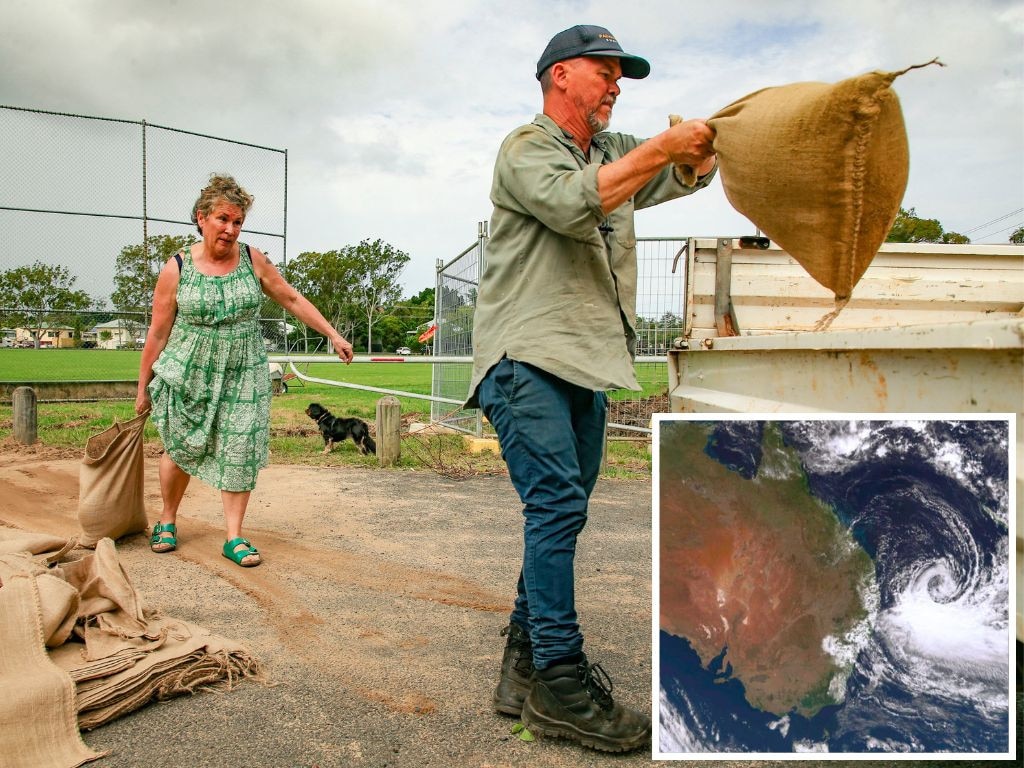Albanese’s disaster warning text system too late for Cyclone Alfred
A disaster warning text messaging system, which the Albanese government promised would be up and running last year, will not be operational when Cyclone Alfred is expected to hit the Queensland coast.

A disaster warning text messaging system, which the Albanese government promised would be up and running last year, will not be operational when Cyclone Alfred is expected to hit the Queensland coast.
The state-of-the-art technology was touted as being able to “take over” mobile phone screens and text instant alerts and warnings to all devices in a specific area, regardless of the phone service provider.
The National Messaging System was designed to be used during an emergency to prevent loss of life, damage to property and counter the spread of misinformation and was to replace an existing outdated system.
In May, 2023 Communications Minister Michelle Rowland said the government was “rolling out” the NMS, saying in a statement that it would “be operational by late 2024”.
A spokesperson for federal Minister for Emergency Management Jenny McAllister confirmed the new system was not operational.
Instead, Senator McAllister’s spokesperson said authorities will have to rely on the federal-owned, state-run “Emergency Alert” system.
That system was used during the 2022 floods in southeast Queensland and northern NSW, and was found to take up to 12 hours to gradually send out alerts to mobile phone in designated areas.
Senator McAllister’s office would not answer specific questions about the rollout of the NMS or why it did not meet the government’s expected delivery in 2024.
“We came to government knowing that things needed to improve, that’s why we are investing in upgrades to telecommunication resilience, flood information systems and a National Messaging System,’’ the spokesperson said in a statement.
“We’re committed to delivering a National Messaging System to support states and territories to share crucial information.
“The delivery of this system relies on all partners coming together, including the telecommunication companies.
“It’s taken time to work through this with the telecommunications providers and we are pleased that they have recently signed contracts for delivery.”
The spokesperson said the Albanese government had always planned to use the existing alert system at this time, despite it previously stating the new technology would be operational in 2024.
“The Emergency Alert was always going to be the primary messaging system for the 2024-2025 High-Risk Weather (Season),’’ Senator McAllister’s spokesperson said in a statement.
“It is complemented by other sources of information, including apps delivered by state governments, emergency broadcasting, and through websites such as the Bureau of Meteorology.
“We understand how important communications are during disasters.
“That’s why we are working to deliver a system that keeps communities safe and will deliver long-term benefit.”
A spokesperson for Ms Rowland earlier referred questions about the failure to deliver the NMS last year to Senator McAllister’s office.
In May 2023, Ms Rowland announced the NMS would prove critical in disasters.
The media statement said: “It is anticipated that the NMS will be designed, built and tested over the next 18 months, becoming operational by late 2024.”
“Being able to communicate effectively – from communities receiving emergency messages as quickly as possible to emergency service operators responding to an event – is critical in ensuring that there is minimal disruption to communities and individuals,’’ Ms Rowland said at the time.
The need for a new national alert system was recommended in the 2020 Royal Commission into National Natural Disaster Arrangements.
The inquiry was called after the then Anthony Albanese-led federal opposition accused the Morrison government of overseeing poor alert systems during the 2019-20 Australian fires and flooding in northern NSW and southeast Queensland in early 2022.
After a specific review of the existing alert systems was finalised in 2022, the Albanese government investigated the use of PSMB in the United States and Europe before committing funding to the technology in 2023.






To join the conversation, please log in. Don't have an account? Register
Join the conversation, you are commenting as Logout